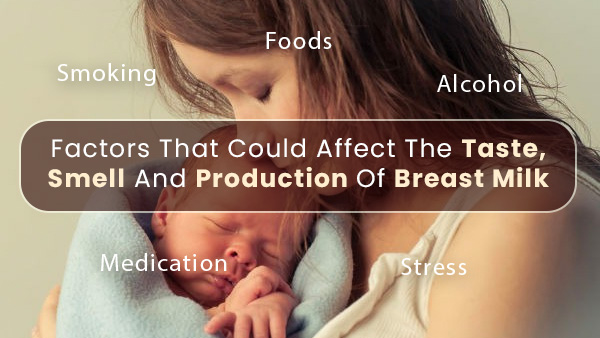Just In
- 2 hrs ago

- 3 hrs ago

- 7 hrs ago

- 8 hrs ago

Don't Miss
- Finance
 IRCON, RITES: 2 Multibagger Navratna Railway Stocks Potential To 17-24% Upside Ahead; Assigned BUY Rating
IRCON, RITES: 2 Multibagger Navratna Railway Stocks Potential To 17-24% Upside Ahead; Assigned BUY Rating - Sports
 CSK vs LSG IPL 2024: 'Stupendous, Gem' - Twitter fills Ruturaj Gaikwad with Love as CSK Captain creates History
CSK vs LSG IPL 2024: 'Stupendous, Gem' - Twitter fills Ruturaj Gaikwad with Love as CSK Captain creates History - Movies
 Shraddha Kapoor Channels Inner Saleswoman, Sells Jewelry Worth Rs 11K In First Attempt- VIRAL VIDEO
Shraddha Kapoor Channels Inner Saleswoman, Sells Jewelry Worth Rs 11K In First Attempt- VIRAL VIDEO - News
 Goa's Railway Renaissance: BJP's Vision Transforms Connectivity
Goa's Railway Renaissance: BJP's Vision Transforms Connectivity - Education
 Meet Naima Khatoon, First Vice Chancellor of AMU, Know Her Background and Education Qualification
Meet Naima Khatoon, First Vice Chancellor of AMU, Know Her Background and Education Qualification - Technology
 Xiaomi Robot Vacuum Cleaner S10, Handheld Garment Steamer, and Redmi Buds 5A Launched in India
Xiaomi Robot Vacuum Cleaner S10, Handheld Garment Steamer, and Redmi Buds 5A Launched in India - Automobiles
 Nissan Magnite Achieves 1 Lakh Unit Sales Milestone: Consistency Helps
Nissan Magnite Achieves 1 Lakh Unit Sales Milestone: Consistency Helps - Travel
Kurnool's Hidden Gems: A Guide To Exploring India's Lesser-Known Treasures
Factors That Could Affect The Taste, Smell And Production Of Breast Milk
Pleasant tastes and odours have a great influence on our daily well-being, and as is the case of newborns who are only exposed to the smell and taste of the mother's skin and breast milk. [1]
Breast milk is the foremost source of nutrition for the baby that could be impacted due to several factors. These factors not only lower the quality of breast milk, but may also affect its taste, smell and production, causing feeding and nutrition problems in babies.

The changes in the taste and smell of breast milk may impact the food choices and appetite of the baby at later stages of life. Therefore, it is essential to avoid certain foods and habits which may directly influence their taste, smell and production.
So, what are those factors? In this article, we will discuss the same. Take a look.


Taste And Smell Of Breast Milk
The taste and smell of human breast milk are unique and is also uniquely suited for the survival, growth and development of human infants. Some studies say that when babies are in the womb, they get exposed to flavours via the mother's diet which is passed through amniotic fluid. [2]
When the babies are born, they experience some similar flavours through breast milk, which is a liquid similar to amniotic fluid, depending on the foods and beverages a mother is taking. This is the reason why the smell and taste of mother's milk can also help relieve the pain of newborns.
Breast milk, in general, tastes sweet, creamy and has a pleasant and mild flavour to cow's milk, which are sometimes like sweetened almond milk. However, the taste may vary depending on what foods a mother has consumed on that particular day.
The smell of breast milk is similar to its taste (like mild cow's milk) as said by many moms and medical experts. It sometimes tastes soapy due to high levels of lipase (a type of protein) in breast milk that may break the fats more quickly and create an altered taste or soapy odour.
This is the reason why breast milk soon starts smelling unpleasantly when left for a while without refrigeration. [3]

Factors That May Affect The Taste And Smell Of Breast Milk
1. Caffeine
A study says that caffeine in breast milk appears soon after its consumption by mothers. Around 300-500 mg of caffeine is considered safe to be consumed by breastfeeding mothers. Coffee may change the taste and smell of breast milk by altering the composition of iron, which is among the vital nutrients in breast milk. This may lead to mild to moderate anaemia and sleeping problems in newborns. [4]
2. Alcohol
Alcohol, including red wine, is not at all advised during the pregnancy and breastfeeding periods. The primary reason is the chemicals in alcohol may get transmitted to newborns and affect their growth and development in many ways, along with affecting the taste and flavour of breast milk due to its chemical composition such as ethanol and excess sugar. Alcohol also slowly gets metabolised in the body of babies and may temporarily decrease the production of breast milk. [5]

3. Stress
Psychological factors such as stress and anxiety also cause major changes in the taste and flavour of breast milk, along with lowering their production and quality. Studies say that any kind of stress during the breastfeeding period, especially during the first six months, can lower the levels of oxytocin in the milk, an essential lactation hormone that helps in milk ejection and reduces stress in mothers. [6]
4. Spicy foods
Spicy foods do not necessarily affect breastfeeding, but some anecdotal studies say that when it gets consumed by babies through breast milk, chances are that they may get fussy or irritated, cry for longer times, stay uncomfortable, experience wheezing or congestion, and may get skin reactions which may bother them for long. These symptoms could also be due to other factors; however, they are also the signs of spicy food consumption by mothers.

5. Organ meat and seafood
Organ meats and seafood come under the list of restricted foods during breastfeeding. Though small amounts of these foods are vital in providing omega-3 fatty acids, iron and proteins to the baby, its access amount may increase toxins in the breast milk, thus affecting their taste and smell and leading to certain adverse effects when consumed.

6. Smoking
Smoking, including passive smoking, can cause adverse changes in the taste, smell and composition of breast milk, says a study. The study also adds that nicotine levels in the breast milk of women who smoke are three times higher compared to the levels in their blood. Smoking can also reduce the volume and lactation period and may affect the growth and development of the infant. [7]
7. Exercise
Moderate exercise helps improve the quality of breast milk and reduce pregnancy weight gain for the good health of mothers. However, excessive exercise can increase the concentration of lactic acid in breast milk, which may alter its taste to some extent. It can also make breast milk taste salty and sour. [8]

8. Certain medications
The dose received prescribed medications have mild to very less effect on breast milk and are usually safe for infants. However, some drugs like anticancer drugs, gold salts, oral retinoids and lithium may change the properties such as smell and taste of breast milk and could also be harmful to the baby. Therefore, it is important to talk to your doctor about the effect of your medications on your breast milk. [9]
9. Birth control pills
A study talks about the effect of oral contraceptives or birth control pills on breast milk during the first few weeks or months of lactation. It says that these pills may negatively affect the production of milk supply, cause blood clots and affect the taste and smell of breast milk due to the introduction of high amounts of estrogen. Therefore, if you are trying to avoid pregnancy soon after the delivery by planning to start on birth control pills, it's better to consult a medical expert to know more about the dose and timings. [10]

10. Mastitis
Certain inflammatory conditions or infections such as mastitis around the nipples may cause changes in the taste and smell of breast milk, along with decreasing its production. A study says that mastitis can affect the biochemical composition of breast milk and make it taste saltier, causing infants to refuse to consume it. [11]

Other Factors
Some other factors that could also contribute to changing the taste, smell and production of breast milk include:
- Consumption of highly pesticide-based foods
- Staying in areas where the environmental pollution is high.
- Though garlic adds to the nutrition of breast milk, its strong pungent smell can change the smell of breast milk.
- Inadequate consumption of water by breastfeeding mothers can make breast milk thick and cause problems in its secretion. Water makes the milk dilute and allows it to flow easily through the nipple. Also, it helps wash out toxins in the breast tissues.
- Proper storage and freezing prevent breast milk from spoiling and helps maintain its taste and smell.

To Conclude
Your child may refuse to consume breast milk if it tastes and smells bad. Therefore, look out for the aforementioned factors and prevent them from occurring.
-
 healthSolar Eclipse 2024: Dos and Don'ts for Pregnant Women During Surya Grahan
healthSolar Eclipse 2024: Dos and Don'ts for Pregnant Women During Surya Grahan -
 healthLunar Eclipse 2024: Dos And Don'ts For Pregnant Woman During Chandra Grahan
healthLunar Eclipse 2024: Dos And Don'ts For Pregnant Woman During Chandra Grahan -
 fashionDeepika Padukone-Ranveer Singh Announce Pregnancy: 6 Maternity Outfit Ideas For The Modern Mom-to-Be
fashionDeepika Padukone-Ranveer Singh Announce Pregnancy: 6 Maternity Outfit Ideas For The Modern Mom-to-Be -
 healthLate Singer Sidhu Moose Wala's Mother Is Pregnant Through IVF, Know What It Is And How To Prepare For It
healthLate Singer Sidhu Moose Wala's Mother Is Pregnant Through IVF, Know What It Is And How To Prepare For It -
 insyncVirat Kohli And Anushka Sharma Name Their Baby Boy 'Akaay', Know What This Beautiful Name Means?
insyncVirat Kohli And Anushka Sharma Name Their Baby Boy 'Akaay', Know What This Beautiful Name Means? -
 pregnancy parentingMaternal Health Awareness Day 2024: 15 Foods That Boost Maternal Health
pregnancy parentingMaternal Health Awareness Day 2024: 15 Foods That Boost Maternal Health -
 pregnancy parentingFrom Contractions To Water Breaking: Knowing When It's Time For The Hospital During Pregnancy
pregnancy parentingFrom Contractions To Water Breaking: Knowing When It's Time For The Hospital During Pregnancy -
 pregnancy parentingBirth Control Pills Can Affect This Primary Function In Women: Find Out What
pregnancy parentingBirth Control Pills Can Affect This Primary Function In Women: Find Out What -
 pregnancy parentingTwo Wombs, Four Hearts: US Mom's Extraordinary Double Uterus Pregnancy
pregnancy parentingTwo Wombs, Four Hearts: US Mom's Extraordinary Double Uterus Pregnancy -
 healthExclusive: A Pregnant Mom Can Posses These Maternal, Fetal Health Risks If Exposed To Air Pollution
healthExclusive: A Pregnant Mom Can Posses These Maternal, Fetal Health Risks If Exposed To Air Pollution -
 pregnancy parentingDelhi Air Pollution: Pregnant Women Must Follow These 4 Things!
pregnancy parentingDelhi Air Pollution: Pregnant Women Must Follow These 4 Things! -
 pregnancy parentingDelhi Air Quality Crisis: How Air Pollution Can Affect Unborn And Newborn Babies? Precaution Tips For Pregnant
pregnancy parentingDelhi Air Quality Crisis: How Air Pollution Can Affect Unborn And Newborn Babies? Precaution Tips For Pregnant


 Click it and Unblock the Notifications
Click it and Unblock the Notifications




